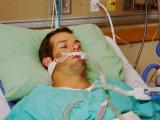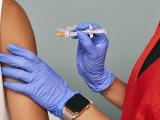Apr 2 (CIDRAP News) The World Health Organization (WHO) today took the unusual step of advising against nonessential travel to Hong Kong and the neighboring Guangdong Province of China because of the outbreak of severe acute respiratory syndrome (SARS) there.
Also today, Chinese authorities reported that 361 SARS cases with 9 deaths occurred in Guangdong Province in March. Those previously unreported numbers swelled the worldwide total to 2,223 cases with 78 deaths, according to WHO. Guangdong Province alone has had 1,153 cases and 40 deaths since last November, the WHO statement said.
The United States has 85 suspected cases, up 16 in the past 2 days, but still no deaths, the Centers for Disease Control and Prevention (CDC) reported today. Of the 85 patients, all but seven acquired the infection while traveling abroad, CDC Director Julie Gerberding, MD, said at a news briefing. Five patients contracted the illness from household contacts, and two healthcare workers caught the disease from patients they cared for.
WHO officials said the travel advisory is intended to help contain the outbreak by reducing travel to areas where "the transmission patterns of SARS are not fully understood." In most cases the illness seems to have spread through face-to-face contact, but cases in a Hong Kong hotel and a large Hong Kong apartment building have pointed to possible spread by other means.
WHO officials said, "This is the first time in the history of WHO that such travel advice has been issued for specific geographical areas of an outbreak of an infectious disease." The CDC, meanwhile, continues to advise against nonessential travel to Hong Kong, mainland China, Singapore, and Hanoi, Vietnam.
Chinese officials previously reported that 792 cases of SARS, known in China as "atypical pneumonia," occurred in Guangdong Province from mid-November through February. The Chinese government has been accused of being very slow to release information about the outbreak.
WHO said today that China will allow a team of WHO experts to travel to Guangdong to investigate the outbreak there. "Many questions about the outbreak in Guangdong Province . . . have yet to be answered," WHO officials said. "This outbreak is the largest reported to date and has also shown evidence of spread in the wider community."
In Hong Kong, more than 240 people were moved this week from the Amoy Garden apartment complex to quarantine centers at two local holiday camps, according to Associated Press reports. A total of 240 residents of the complex have been hospitalized with the disease, but there were only three new cases among residents today, the AP reported. One building in the complex was sealed Mar 31 after 107 cases occurred there.
The Hong Kong outbreak appeared to be slowing today, as local health officials reported a total of 23 new cases. Hong Kong has had 708 cases so far, and 89 of those patients have recovered, the department said.
At the CDC briefing, Gerberding said CDC is beginning to give state health departments test results indicating whether suspected patients have SARS or not. The agency will report to the states whether patients' specimens test positive for antibodies to a coronavirus that is suspected, but not yet proved, to be the cause of SARS, she said. "What we're seeing so far is that people with the strongest epidemiologic link to SARS are having positive tests," which is good, though not defintive, evidence that SARS is a coronavirus infection, she said.
Gerberding said the CDC is using a broad definition of SARS because of its determination to contact anyone who might have the illness. As a result, suspected US cases seem generally milder than those in other parts of the world, with only 20 cases of pneumonia and one case of ventilatory support reported so far. "This is a conscious decision on our part to include anybody with fever and respiratory symptoms who had traveled to an affected area," she said. WHO, in contrast, counts only those who have the severe form of SARS with pneumonia.
Also today, bioterrorism expert and epidemiologist Michael T. Osterholm, PhD, MPH, said SARS probably spread to humans from animals, just as HIV spread from monkeys. Speaking on a KNOW radio program in Minneapolis, Osterholm said, "There's no evidence at all that this is a bioterrorism agent, engineered to do this." Coronaviruses are found in birds and pigs, and the virus suspected in SARS bears enough resemblance to animal strains to suggest that it jumped from an animal population, he said. Osterholm is director of the University of Minnesota Center for Infectious Disease Research and Policy, publisher of this Web site.
Osterholm and Gerberding both said today that face masks are a useful infection control measure only for people who have direct contact with SARS patients. CDC is advising healthcare workers caring for SARS patients to wear specially fitted N-95 respirators, designed to stop aerosolized particles, Gerberding said. Possible SARS patients at home should wear ordinary surgical masks, if possible, to catch droplets from the mouth and nose. But if the patient can't wear such a mask, household contacts should wear one, she said.
Osterholm commented, "In this country I see no reason for anyone to wear a mask of any kind" unless they have direct contact with SARS patients.
Neither Osterholm nor Gerberding was optimistic about containing SARS. Osterholm said that respiratory pathogensunlike bloodborne pathogens such as HIVcan move extremely fast. And Gerberding said, "It's far too early to predict, but it does appear to be a contagious respiratory infection, and you know how difficult it is to control the common cold. I think the global community has to take this very seriously."
See also:
WHO announcements about travel advisory and Chinese cases
http://www.who.int/csr/sarsarchive/2003_02_02b/en/
http://www.who.int/mediacentre/releases/2003/pr29/en/



















